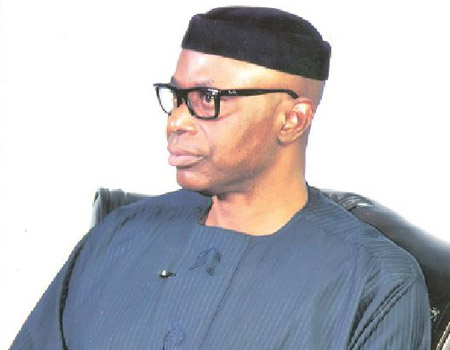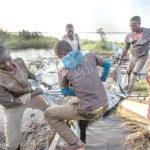
In this interview conducted during the 51st Annual General Meeting and Scientific Conference of the International College of Surgeons, Nigeria National Section, held at the Ogunlesi Multipurpose Hall of the University College Hospital, Ibadan, on Thursday, the immediate past governor of Ondo State, Dr Olusegun Mimiko, speaks with ABIODUN AWOLAJA on access to medical care, the menace of road traffic accidents in Nigeria, the mechanisms needed to curb the menace and the role of the government in policy and practical interventions.
We have leaders that travel out of the country all the time for medical care. What does this say about the image of medicine in Nigeria?
Well, I think the message is to government. From my experience, we have cutting-edge specialists, doctors all over the world. Some of them are in Nigeria, even cardiovascular surgeons. They are all here. But we must have the necessary infrastructure, necessary equipment, gadgets and the technology. Now if we do our own part, by encouraging and by bringing state-of-the-art facilities, by creating an enabling environment (which also involves being able to catalyse the private sector) and building 21st century facilities, people will come here. We have the personnel: we only need the infrastructure and the political will to get things done.
In your lecture on emergency medical services, you gave some statistics on road accidents in the country and their devastating impact. Can you elaborate on that?
What I have said is that the greatest killer of our young adults from age 15 to 29 in Nigeria is road traffic accidents. And the situation has been worsening. I also mentioned that government at all levels must sit down to fashion out comprehensive emergency medical services to be able to respond adequately to the public health epidemic which is road accidents.
How do we go about this?
I have tried to enumerate what we did in Ondo State as part of our emergency medical services. I said there are very important legs to it. Number one is the attitude. Most accidents are caused-and that has been established by the World Health Organisation (WHO)-by the attitude or behavior of over-speeding, drunk-driving, not using your safety belts and all of that. That contributes a significant proportion of road traffic accidents.
What then should we do?
Our intervention must be preventive. As I said, we must start from getting the right attitude. In Ondo State, we built a model motor park, state-of-the-art, with a waiting room. No alcoholic beverages. This was just to point out what we have always believed: that the psychological environment of our motor parks is, perhaps, the number one trigger of mechanism for road transport accidents in Nigeria. So, we changed the ambience; we changed the narrative about our motor parks to drive that important point.
It is also important that when we are designing our roads, as a preventive measure, we should have walkways for pedestrians. If you are a motorcyclist, you wear crash helmets. By WHO figures, more than 49 per cent of road traffic deaths and injuries are caused, not by occupants of vehicles, but by cyclists and pedestrians. So, even in our road design as a preventive measure, we must take that into cognizance. But beyond all those preventive measures is the need for us to have the appropriate infrastructure.
What would this entail?
We must have base stations where ambulances with advanced life-saving gadgets are appropriately located round the townships. There must be communication centres where we have universal numbers that anybody can call in case of accidents. It is also very important.
Again, we must have trained paramedics and extricators with the kind of advanced equipment that we used in Ondo State, which can tear apart any vehicle and rescue accident victims. That is also absolutely important. Now when we rescue the victims, there must be designated trauma centres in this country. We must uplift the capacity of some of our secondary care centres to be able to take care of accidents and emergencies.
What else is needed?
We must have tertiary stage one trauma units all over the country. Also, we should have the necessary personnel. I can tell you that there are personnel all over the world, if we can give them the right incentives. But yet another very important issue is the fact that every victim of road traffic accidents must have universal, unfettered and unhindered access to care, especially in the first few hours. The first one after care is the golden hour. If you don’t do the right thing-when people are waiting for cards and are being asked to go and bring money-you lose most of the patients.
So, it must be unhindered and unfettered access to care that you have, and that is what we have done in Ondo State. The mandate of our emergency medical services is unhindered, unfettered access to care, optimal care within the first 48 hours. So, even before you start asking how you should fix the bone or money for necessities, you must have saved the life of the accident victim.
I was saying that, as a country, we need a comprehensive emergency services, strategies and mechanisms on ground. There is a need to leverage on the Health Act and all other very innovative funding mechanisms. Every Nigerian should be assured that if there is any accident or crash or emergency, the state has a responsibility to take care of them. That is the whole essence of what I have said.
WATCH TOP VIDEOS FROM NIGERIAN TRIBUNE TV
- Let’s Talk About SELF-AWARENESS
- Is Your Confidence Mistaken for Pride? Let’s talk about it
- Is Etiquette About Perfection…Or Just Not Being Rude?
- Top Psychologist Reveal 3 Signs You’re Struggling With Imposter Syndrome
- Do You Pick Up Work-Related Calls at Midnight or Never? Let’s Talk About Boundaries






